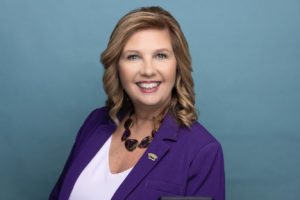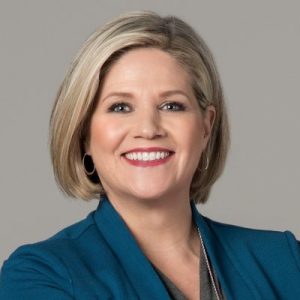Foreign-trained nurses elated to practise in Ontario
Foreign-trained nurses elated to practise in Ontario

Jennifer Lopez, Integrated Filipino Canadian Nurses
Association (IFCNA) presiden
Province’s new program seeks out eligible IENs to help address staffing shortage as world enters 3rd year of pandemic
January 18, 2022
By Veronica Silva Cusi
The Philippine Reporter
LJI Reporter
Internationally-educated nurses (IENs) in Ontario are ecstatic at a new opportunity that allows them to practise their profession to help address the staffing shortage in the province.
On January 11, the Ministry of Health announced that IENs can help staff the province’s health care system as the world moves into the third year of the pandemic.

Ontario Health Minister Christine Elliott
Health Minister Christine Elliott said they are working with Ontario Health, the College of Nurses of Ontario (CNO), and health care partners to deploy IENs “to hospitals and other health care settings in need of staffing support to work as part of a team under the supervision of a regulated health care provider, such as a registered nurse (RN) or doctor.”
Ontario Health will match applicants to health care settings that need them most.
The province said that there are already more than 1,200 IENs who have expressed interest for the initiative, which the CNO is calling Supervised Practice Experience (SPE) Partnership program. On its website, the CNO said the program gives applicant IENs the opportunity to meet the requirements of evidence of practice and/or language proficiency.
Integrated Filipino Canadian Nurses Association (IFNCA), a group of Filipino IENs who are registered practical nurses, RNs or in the process of getting registered in the nursing profession in Canada, said the initiative is a win-win for them and the province.
“We are happy at IFCNA with the turn of events. Finally, Canada bureaucracy eases up for IENs,” said Jennifer Lopez, IFCNA president, in an email reply to The Philippine Reporter. Finally, IFCNA’s appeals have been heard, she added.
But there is more room for improvement to help other IENs, said Lopez.
“There are IENs who came [to Canada] as caregivers on work permit, and nursing students on post-graduate work permit (PGWP) who met CNO requirements but can’t practise as RN or RPN because they are now on implied status. They are all waiting to have their PR status to enable them to practice.”

Cathryn Hoy, RN, president, Ontario Nurses Association (ONA)
Cathryn Hoy, president of the 68,000-strong Ontario Nurses Association (ONA), and Ontario NDP Leader Andrea Horwath are aware of these immigration issues.
Hoy and Horwath spoke with media on January 13 to offer the Ford government solutions to nursing staffing shortage estimated to number 22,000.
Hoy said there are already IENs registered with CNO but whose permits or immigration status need be rushed because they are ready to work.
As for the other IENs, Hoy said the announcement is a “mixed blessing” because while Ontario needs more nurses, licensed RNs who are already overburdened with their current patient workload – one of the worst in Canada, according to Hoy and Horwath — will be added more workload by supervising IENs who are not yet registered with the CNO.
In response to questions from TPR, Hoy and Horwath called on the government to fast track the registration process as IENs have the experience prior to moving to Canada and to benefit Ontarians.
“IENs struggle when they come to Ontario because it takes some years to get their license and that isn’t right. They are registered nurses in their home countries; there’s no need to take two to four years to prove their worth in Ontario. The College of Nurses needs to be looking at that. The government needs to be looking at the process and speed up the process,” Hoy said.

Ontario NDP Leader
Andrea Horwath
Horwath said this long process of getting recognized in professions in Ontario has been ongoing for decades, and neither the previous Liberals nor the current ruling Conservatives have done enough to resolve the matter.
“We need to get serious about making sure that we are … expediting … the process to get people working in the fields in which they train,” said Horwath. “They should be given every opportunity to practise in their fields in Ontario because it’s good for them and it’s good for us.”
Horwath added that the NDP has a critic for foreign credentials recognition, Member of Provincial Parliament (Scarborough Southwest) Doly Begum, who she has tasked in 2021 to study how to reduce the barriers to getting recognition in Ontario.
In a statement provided TPR, Begum said the announcement this week was a “small step forward” won by IENs and those who have been advocating for years to be able work in their filed.
She said the NDP will continue “to fight for the removal of barriers for internationally-trained health care workers to work in their field in Ontario.”
In April 2021, CNO re-enacted the Emergency Assignment Class (EAC) to allow those qualified to provide nursing care to help during the pandemic even if they do not meet all the registration requirements.
Also last April, Elliott said in a press conference that the province is seeking help from the United States and the Philippines to relieve the already strained health care workers. However, there were no further developments on this.
Data from Canadian Institute for Health Information show that in 2016, 34.4% of IENs had graduated in the Philippines while 13.3% in India and 9.3% from the United Kingdom.
Comments (0)